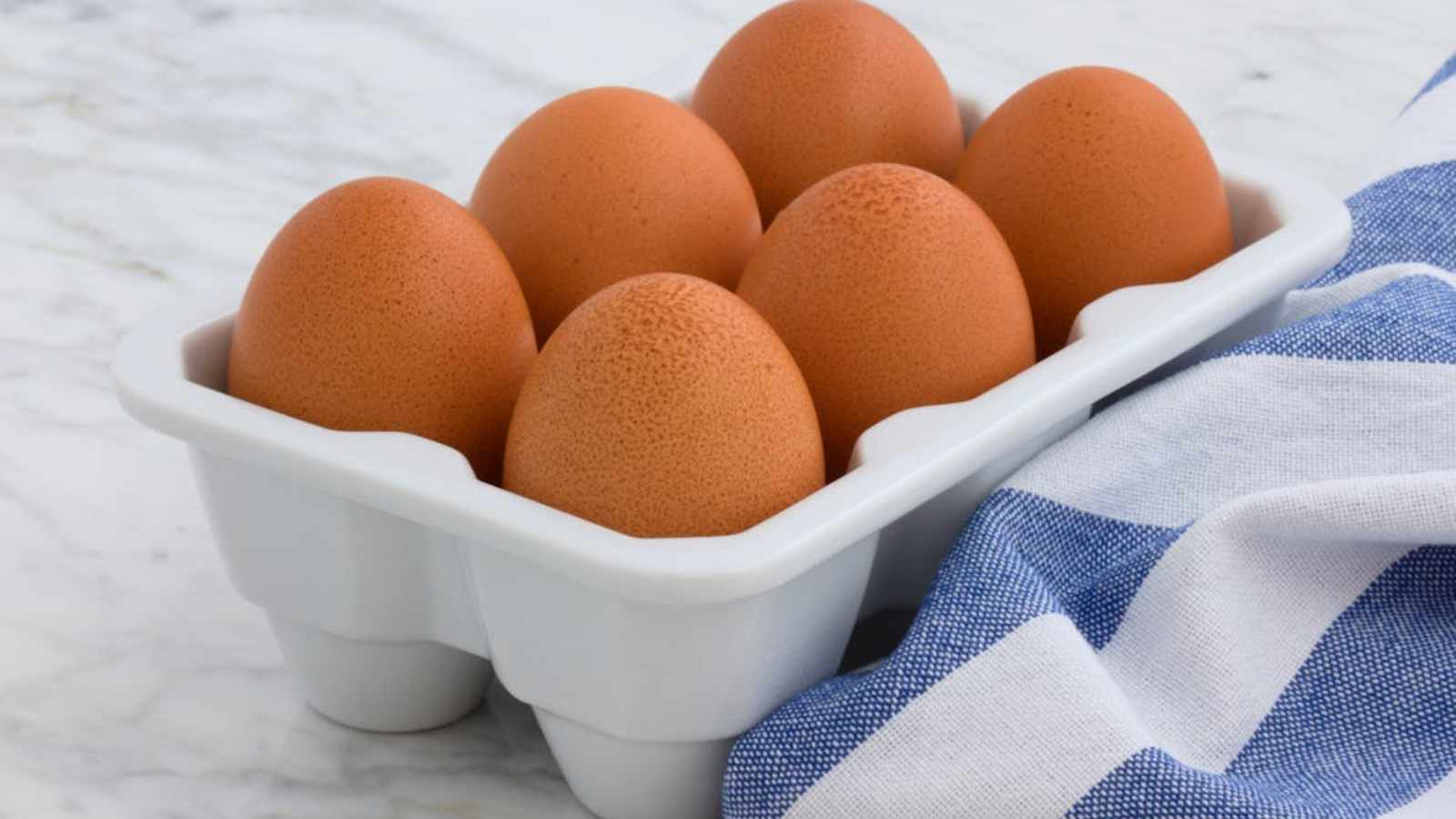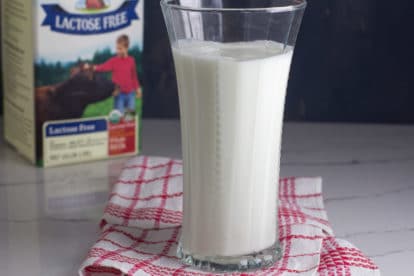Scientists say the right foods can slow cognitive decline by up to seven years—and your next meal could make the difference.
I’ve always believed the brain deserves as much pampering as we give our skin routines or gym schedules. A few years ago, I went through a phase where I’d forget the simplest things, like where I left my keys or why I opened the fridge in the first place.
At first, I blamed stress, but then I stumbled across research showing how much food really impacts brain function. For example, a Harvard Health study found that diets rich in leafy greens, berries, and fatty fish can actually slow cognitive decline by more than seven years. That blew my mind—literally!
It turns out that what we put on our plates can fuel focus, memory, and even creativity. So if you’ve ever wondered which snacks could sharpen your mind instead of leaving you in a fog, here are 16 delicious foods backed by science to give your brain an edge.
Blueberries

These tiny berries often get called “brain food” for a good reason. They’re loaded with antioxidants that help protect the brain from oxidative stress and may slow down age-related decline.
A study published in Nutritional Neuroscience found that older adults (ages 65–80) who consumed freeze-dried wild blueberry powder daily for six months showed significant improvements in cognitive processing speed. They’re also rich in flavonoids, which support communication between brain cells.
Toss them into oatmeal, smoothies, or just eat them by the handful.
Salmon

Fatty fish like salmon are one of the best sources of omega-3 fatty acids, which your brain needs to function properly. About 60% of the brain is made of fat, and omega-3s play a key role in building cell membranes.
A 2024 meta-analysis found that people who consumed fish regularly, especially those in the highest intake group, had a significantly lower risk of cognitive decline, dementia, and Alzheimer’s disease. The dose-response analysis showed that consuming around 150g of fish per day could reduce the risk of cognitive impairment by up to 30%.
Salmon also contains vitamin D, which has been linked to better mood regulation. Grilling or baking it makes for both a tasty and brain-friendly dinner.
Turmeric

This golden spice has been making waves in neuroscience for its active compound, curcumin. Curcumin has strong anti-inflammatory and antioxidant effects that can cross the blood-brain barrier.
A landmark 18-month, double-blind, placebo-controlled trial led by UCLA researchers, published in the American Journal of Geriatric Psychiatry, found that daily curcumin supplementation significantly improved memory and mood in adults aged 50–90 with mild memory complaints.
Turmeric also supports the growth of new brain cells. Adding it to curries or golden milk is both delicious and beneficial.
Walnuts

If you’ve ever noticed, walnuts even look a little like the brain, and they’re just as useful for it. Packed with alpha-linolenic acid (a type of plant-based omega-3), they support cognitive function and memory.
In fact, a study in the Journal of Nutrition, Health & Aging found that regular walnut consumption was associated with better brain performance in adults. They’re also full of antioxidants that fight inflammation. A handful a day makes for a powerful snack.
Strawberries

Strawberries, much like blueberries, are full of flavonoids that benefit brain function. A study from Harvard found that women who consumed two or more servings of strawberries per week experienced slower memory decline by up to 2.5 years compared to those who ate fewer berries.
They’re also high in vitamin C, which supports overall brain health. Their natural sweetness makes them a great alternative to sugary snacks. Eating them fresh or blended into smoothies is both enjoyable and effective.
Dark chocolate

Good news: chocolate can be good for your brain, as long as it’s the dark kind. It’s rich in flavonoids, caffeine, and antioxidants, all of which can boost attention and mood.
A Harvard Medical School study even suggested that regular cocoa intake improves blood flow to the brain. Just a small piece is enough to give you that lift without overloading on sugar. It’s a treat that feels indulgent but comes with benefits.
Pumpkin seeds

These little seeds are nutrient powerhouses for the brain. They contain magnesium, zinc, iron, and copper, all of which are critical minerals for nerve signaling and brain function. Low levels of magnesium, for example, are linked to migraines and mood disorders.
Zinc supports memory, while iron helps deliver oxygen to the brain. Sprinkle them on yogurt, salads, or just eat them roasted with a bit of sea salt.
Spinach

Spinach is rich in vitamins and minerals that directly support brain health. They’re rich in lutein, folate, and vitamin K, which are linked to slower cognitive decline.
A long-term study by Rush University found that individuals who consumed at least one serving of leafy greens daily, such as spinach, kale, collards, or lettuce, had cognitive scores equivalent to those of people 11 years younger than those who rarely or never ate them.
Spinach also provides iron, which helps oxygen circulate to the brain. A salad or sautéed side dish can quietly do a lot for your mind.
Olive oil

Extra-virgin olive oil is a staple of the Mediterranean diet, consistently ranked as one of the best for promoting brain health. It’s loaded with antioxidants and healthy fats that reduce inflammation and support memory.
People who regularly consume olive oil tend to exhibit better cognitive performance as they age. It also supports heart health, which directly benefits blood flow to the brain. A drizzle over vegetables or bread goes a long way.
Eggs

Eggs are often underrated when it comes to brain health. They’re one of the best sources of choline, a nutrient essential for producing acetylcholine, a neurotransmitter tied to memory and learning.
Research from Boston University has highlighted that higher choline intake leads to improved memory performance. Eggs also provide B vitamins, which help regulate mood and energy. Scrambled, boiled, or poached—there’s no shortage of ways to enjoy them.
Green tea

When you’re looking for focus without the jitters, green tea is a powerful ally. It contains caffeine for alertness and L-theanine, which promotes calm focus. This combination can improve attention span and working memory.
Green tea also has polyphenols that help protect the brain from aging. A warm cup in the morning can feel like a gentle reset for both body and mind.
Oranges

Vitamin C isn’t just for immune health; it’s also essential for brain function. Oranges deliver more than 100% of the recommended daily value in a single serving.
A 2022 meta-analysis found that plasma vitamin C levels were significantly lower in individuals with Alzheimer’s disease compared to healthy controls. This suggests that vitamin C deficiency may play a role in the disease’s progression and that supplementation could be a protective strategy.
It also fights oxidative stress, which can damage brain cells over time. A glass of fresh juice or simply peeling one for a snack keeps things bright and healthy.
Broccoli

Broccoli is another green vegetable that offers significant benefits for brain health. It’s high in vitamin K, which is linked to better memory and cognitive function. A single serving gives you more than 100% of your daily vitamin K needs.
Broccoli also contains compounds with anti-inflammatory properties, helping the brain age more gracefully. Roasting or steaming it makes it easy to include in meals.
Coffee

That morning cup of coffee does more than wake you up. The caffeine in coffee blocks adenosine, a chemical that makes you feel tired, while boosting dopamine production.
Moderate coffee intake leads to better concentration and a lower risk of Alzheimer’s and Parkinson’s diseases. It’s also full of antioxidants that protect the brain over time. Just keep it to a reasonable amount—too much can backfire on focus.
Avocado

Avocados have healthy monounsaturated fats that support healthy blood flow, including to the brain. They also contain vitamin E, which is linked to slower cognitive decline in aging populations. The potassium in avocados helps regulate blood pressure, which is key for long-term brain health.
A study supported by the Hass Avocado Board found that daily avocado consumption led to measurable improvements in cognitive function and neural lutein levels—a key nutrient linked to brain connectivity and performance.
Lentils

Lentils provide a steady source of complex carbs, which fuel the brain with glucose. They also have folate, which is linked to better mental clarity and a lower risk of depression.
Folate deficiency, on the other hand, can lead to cognitive issues over time. Lentils also contain iron and protein, making them a nutritious addition to soups or salads. They’re simple, filling, and surprisingly brain-friendly.
Key takeaways

Antioxidant-rich foods help protect the brain from the effects of aging. Berries, dark chocolate, and leafy greens help combat oxidative stress, maintaining sharp memory and cognition over time.
Healthy fats fuel brain power. Salmon, walnuts, avocado, and olive oil provide essential omega-3 fatty acids and monounsaturated fats that support cell membranes and blood flow.
Vitamins and minerals boost mental clarity. Foods like eggs, pumpkin seeds, oranges, and broccoli provide choline, magnesium, vitamin C, and vitamin K, all essential for maintaining focus, memory, and mood regulation.
Everyday staples make a big difference. Coffee and green tea for alertness, turmeric, lentils, and strawberries for long-term protection: simple daily choices can add up to stronger brain health.
Disclaimer – This list is solely the author’s opinion based on research and publicly available information. It is not intended to be professional advice.
16 grocery staples to stock up on before prices spike again

16 Grocery Staples to Stock Up On Before Prices Spike Again
I was in the grocery store the other day, and it hit me—I’m buying the same things I always do, but my bill just keeps getting higher. Like, I swear I just blinked, and suddenly eggs are a luxury item. What’s going on?
Inflation, supply-chain delays, and erratic weather conditions have modestly (or, let’s face it, dramatically) pushed the prices of staples ever higher. The USDA reports that food prices climbed an additional 2.9% year over year in May 2025—and that’s after the inflation storm of 2022–2023.
So, if you’ve got room in a pantry, freezer, or even a couple of extra shelves, now might be a good moment to stock up on these staple groceries—before the prices rise later.
6 gas station chains with food so good it’s worth driving out of your way for

6 Gas Station Chains With Food So Good It’s Worth Driving Out Of Your Way For
We scoured the Internet to see what people had to say about gas station food. If you think the only things available are wrinkled hot dogs of indeterminate age and day-glow slushies, we’ve got great, tasty news for you. Whether it becomes part of a routine or your only resource on a long car trip, we have the food information you need.
Let’s look at six gas stations that folks can’t get enough of and see what they have for you to eat.




